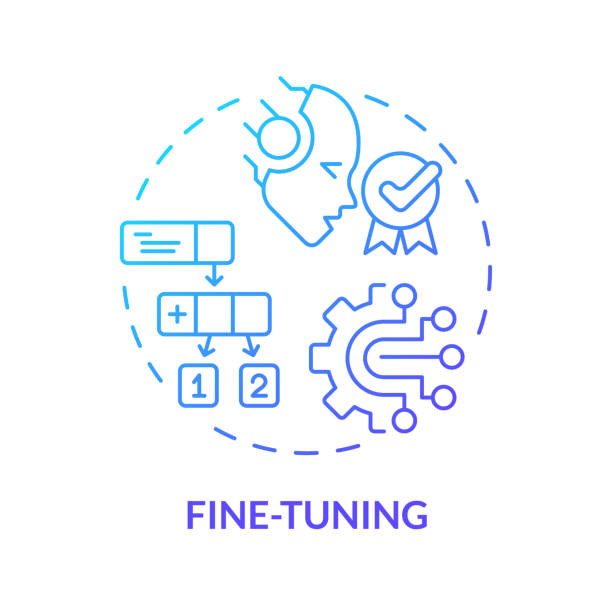Artificial intelligence (AI) has become the cornerstone of modern business transformation, and at the heart of this revolution are large language models (LLMs). Trained on massive datasets, these models possess an extraordinary ability to understand, generate, and process human language with near-human fluency. Yet, their true potential lies not in general-purpose applications but in customization — tailoring them to specific business needs through LLM Fine-Tuning.
As industries seek intelligent systems that align with their unique workflows, fine-tuning large language models has emerged as a critical process for delivering domain-specific accuracy, efficiency, and value.
Understanding LLM Fine-Tuning
LLM Fine-Tuning is the process of adapting a pre-trained large language model to perform specialized tasks using custom datasets. While models like GPT or LLaMA are trained on vast public data, they often lack the contextual understanding required for niche business applications. Fine-tuning bridges that gap by retraining the model on curated data relevant to a particular domain—such as finance, healthcare, customer service, or law—resulting in outputs that are more accurate, compliant, and aligned with business goals.
Through LLM Fine-Tuning, organizations can create highly responsive AI assistants, automate complex documentation, analyze sentiment in industry-specific terminology, and streamline customer communication. Unlike traditional models that provide generic responses, a fine-tuned LLM reflects the tone, language, and expertise of the business itself.
Why Businesses Need Fine-Tuned LLMs
Pre-trained models are designed for broad generalization. While they perform well across multiple contexts, they often struggle with nuances that matter in real-world business operations—such as compliance standards, domain jargon, or contextual decision-making.
Fine-tuning addresses these challenges by:
- Enhancing Accuracy: The model learns from domain-specific examples, improving its ability to generate relevant responses and reduce errors.
- Improving Efficiency: Fine-tuned models deliver faster, more accurate insights, reducing the need for manual verification or rework.
- Supporting Compliance: In regulated industries like banking or healthcare, fine-tuned models adhere to data privacy and operational guidelines.
- Delivering Contextual Intelligence: Businesses can integrate organizational tone, brand style, and internal knowledge into model behavior.
By embedding corporate intelligence into model training, enterprises move from using general-purpose AI tools to deploying systems that act as intelligent business partners.
Building the Foundation: Data Quality Matters
No fine-tuning process can succeed without high-quality, well-structured data. The model’s performance depends on the quality of the training datasets—accuracy, diversity, and balance directly affect the reliability of its predictions and outputs.
The process of Building Datasets for Large Language Model Fine-Tuning is both art and science. It involves data collection, cleaning, annotation, and validation to ensure that every example aligns with the model’s intended function. For instance, if an LLM is being fine-tuned for a financial institution, its training data should include transaction records, regulatory policies, and customer queries, all annotated with precise labels to guide learning.
High-quality dataset preparation also minimizes bias and ensures the model behaves ethically and consistently across varied inputs. This human-in-the-loop approach—combining AI automation with expert oversight—forms the foundation for reliable and responsible AI systems.
Real-World Business Applications of Fine-Tuned LLMs
Fine-tuned language models are reshaping industries by embedding intelligence into critical business functions. Here are some practical examples:
1. Customer Support Automation
Businesses are using fine-tuned chatbots to understand domain-specific queries and provide accurate resolutions. For instance, a fine-tuned model for the telecom industry can handle complex billing questions or troubleshoot network issues in real time.
2. Financial Analysis and Reporting
In finance, LLM Fine-Tuning enables AI models to analyze statements, summarize reports, and detect anomalies specific to investment or accounting contexts. It also ensures that outputs comply with financial regulations.
3. Healthcare Documentation and Research
Fine-tuned models assist doctors and researchers by generating patient summaries, analyzing medical literature, and recommending treatment protocols based on contextual understanding of clinical data.
4. Legal Document Review
Law firms use domain-adapted models to review contracts, extract clauses, and ensure compliance with jurisdictional laws, dramatically reducing the time required for manual review.
5. Content Personalization and Marketing
Fine-tuned models craft personalized campaigns, product recommendations, and brand-aligned content, allowing marketers to engage customers more effectively through contextual insights.
Across these use cases, fine-tuning transforms AI from a general assistant into an expert collaborator that mirrors human decision-making.
Challenges and Best Practices in Fine-Tuning
Fine-tuning large models offers immense promise, but it also introduces technical and operational challenges. Businesses must carefully navigate these to ensure sustainable and effective implementation:
- Data Privacy and Security: Sensitive information used for fine-tuning must be anonymized and protected.
- Bias Mitigation: Continuous monitoring and bias detection ensure fairness in model predictions.
- Model Optimization: Fine-tuning should balance accuracy with computational efficiency to prevent overfitting or unnecessary complexity.
- Continuous Learning: The model must evolve with new data to remain relevant and adaptive to market dynamics.
Best practices include establishing clear objectives, curating balanced datasets, incorporating human feedback loops, and performing rigorous testing before deployment.
Top 5 Companies Providing LLM Fine-Tuning Services
The growing importance of fine-tuned AI solutions has led to a surge in specialized service providers. Below are five leading companies known for delivering cutting-edge LLM Fine-Tuning services to enterprises worldwide:
- Digital Divide Data (DDD) – Recognized for its expertise in ethical AI development and large-scale data preparation, DDD provides advanced fine-tuning solutions powered by high-quality, human-curated datasets. Their balanced approach—combining human intelligence and machine learning—ensures precision, scalability, and fairness in AI models.
- OpenAI – The pioneer behind GPT models, OpenAI offers fine-tuning APIs that enable businesses to adapt powerful language models to specific organizational contexts, ensuring domain alignment and improved accuracy.
- Anthropic – Known for its focus on safe and interpretable AI, Anthropic fine-tunes large language models like Claude to deliver context-sensitive, transparent, and ethical AI applications.
- Hugging Face – This open-source leader provides robust infrastructure and datasets for model fine-tuning, empowering organizations to customize and deploy models efficiently using the Transformers ecosystem.
- Google Cloud AI – Leveraging its advanced machine learning tools, Google enables enterprises to fine-tune models using Vertex AI, ensuring seamless integration with existing business analytics and data pipelines.
These companies collectively represent the forefront of innovation, helping organizations leverage AI responsibly while achieving greater operational intelligence and personalization.
The Future of Enterprise AI Through Fine-Tuning
As generative and language-based AI models become integral to business workflows, the demand for domain-specific adaptability will only increase. Fine-tuning will evolve from a specialized process to a standard practice, allowing every organization to harness AI in a way that reflects its unique knowledge and values.
The future of enterprise AI will be built on models that not only understand language but also understand context, intent, and purpose. Through responsible data practices, continuous learning, and ethical alignment, fine-tuned LLMs will redefine how humans and machines collaborate—driving efficiency, innovation, and trust in the digital economy.
Conclusion
Fine-tuning large language models is more than an optimization technique—it’s a transformative strategy for modern enterprises. By combining high-quality data, ethical oversight, and domain expertise, businesses can create AI systems that think and communicate like industry specialists. The ability to personalize and contextualize AI at this level marks a turning point in digital transformation—one where technology doesn’t just automate tasks but enhances human decision-making and creativity.
















